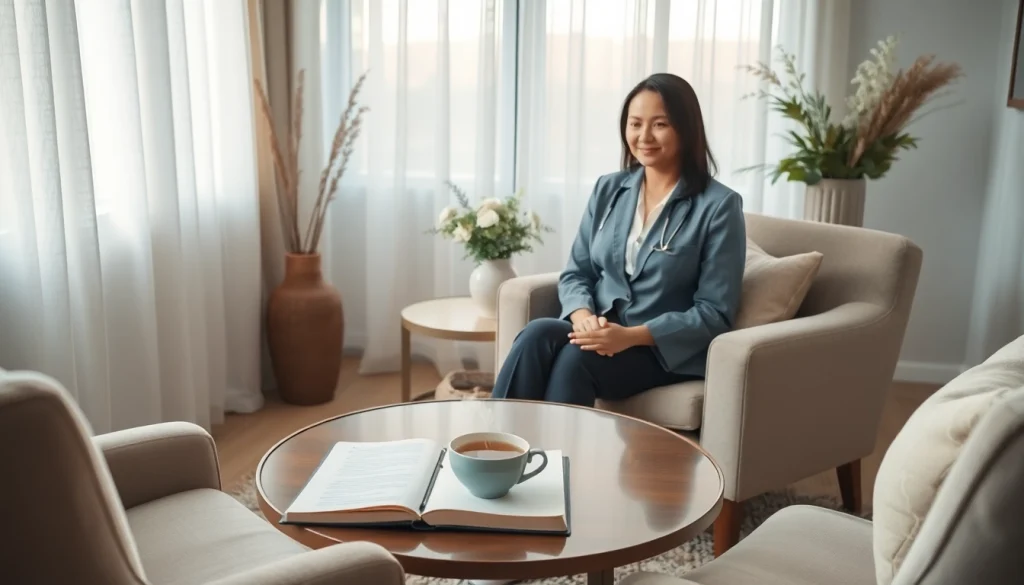Understanding Psychotherapy Dubai: A Path to Healing
Psychotherapy, often referred to as talk therapy, is a pivotal aspect of mental health care that provides individuals with the tools to understand their emotions, thoughts, and behaviors. In a vibrant, multicultural city like Dubai, where stressors can vary from fast-paced lifestyles to cultural adjustments, the need for effective mental health services is paramount. Engaging in psychotherapy dubai allows residents to find a path to healing that suits their unique needs, enhancing their overall well-being and quality of life.
What is Psychotherapy?
Psychotherapy encompasses a range of therapeutic techniques designed to help individuals overcome various psychological issues. It typically involves conversations between a trained therapist and a client, aimed at enabling the latter to understand and work through their emotions, behaviors, and challenges. This process not only aids in diagnosing and treating mental health conditions but also promotes personal growth and self-awareness. Common therapeutic modalities utilized in psychotherapy include cognitive-behavioral therapy (CBT), dialectical behavior therapy (DBT), and psychodynamic therapy. Each approach operates on different principles for addressing anxiety, depression, trauma, and more.
Types of Psychotherapy Offered in Dubai
In Dubai, diverse types of psychotherapy are available to cater to the varied cultural backgrounds and mental health needs of its residents. Notable types include:
- Cognitive Behavioral Therapy (CBT): Emphasizing the connection between thoughts, emotions, and behaviors, CBT is an effective treatment for anxiety and depression by helping clients reframe negative thought patterns.
- Psychodynamic Therapy: This method seeks to explore unconscious influences and past experiences on current behavior, often beneficial for understanding deep-seated issues such as trauma.
- Humanistic Therapy: Focusing on personal growth and self-actualization, this approach encourages the client to recognize their potential and work toward achieving it.
- Dialectical Behavior Therapy (DBT): Originally developed for borderline personality disorder, DBT combines cognitive-behavioral techniques with mindfulness strategies, focusing on emotional regulation and interpersonal effectiveness.
- Couples Therapy: Each partner in a relationship benefits from learning to communicate effectively and resolve conflicts, enhancing their emotional connection.
- Family Therapy: This approach addresses issues within family dynamics, promoting harmony among family members and resolving conflicts.
Benefits of Psychotherapy for Mental Well-being
The advantages of engaging in psychotherapy extend beyond treating mental disorders. Clients often experience:
- Increased Self-Awareness: Understanding one’s thoughts and feelings contributes to better decision-making and healthier relationships.
- Emotional Regulation: Therapy equips individuals with tools to manage overwhelming emotions and stress, promoting resilience.
- Improved Relationships: By addressing personal issues, individuals often find it easier to connect with and communicate effectively with loved ones.
- Stress Reduction: Regular sessions can significantly reduce stress levels and improve emotional health.
- Long-Term Coping Strategies: Clients learn thriving techniques that can be applied long after therapy ends, promoting sustained well-being.
Choosing the Right Psychotherapist in Dubai
Finding a psychotherapist who fits one’s individual needs is crucial to the therapeutic process. The following criteria can assist in identifying the right mental health professional.
Qualities to Look for in a Psychotherapist
When seeking psychotherapy, consider the following attributes in a potential therapist:
- Credentials and Experience: Ensure the therapist is licensed and has experience with your specific issues.
- Specialization: Look for a professional who specializes in the area that you need help with, whether that be anxiety, depression, or trauma.
- Communication Style: A therapist’s approach should resonate with you, providing a comfortable environment conducive to open dialogue.
- Empathy and Understanding: The best therapists employ compassion and genuine care in their practice, establishing trust and safety.
Questions to Ask During Initial Consultation
During your first meeting, it’s important to ask relevant questions to gauge the therapist’s fit:
- What is your therapeutic approach?
- How many clients have you worked with that have similar issues as I do?
- What can I expect from our sessions?
- How do you measure progress in therapy?
Understanding Fees and Session Structures
Therapy can be a financial investment, making it essential to understand the fees involved and session lengths. Typically, individual sessions last between 45 to 60 minutes. Fee structures may vary—is the therapist offering sliding scale fees, or do they adhere to fixed pricing? Additionally, check whether your health insurance can help cover costs, as many plans include mental health support.
Common Mental Health Issues Addressed by Psychotherapy Dubai
Psychotherapy is effective in treating a range of mental health conditions prevalent among individuals in Dubai. Understanding these common issues can empower individuals to seek help when needed.
Anxiety Disorders and Their Treatment
Anxiety disorders are among the most prevalent mental health conditions diagnosed in Dubai. Symptoms may include excessive worry, panic attacks, or social anxiety. Effective psychotherapy, especially CBT, has been shown to significantly reduce anxiety symptoms by helping individuals confront their fears and develop coping mechanisms.
Depression: Recognizing Symptoms and Solutions
Depression manifests in various forms, with symptoms ranging from persistent sadness and fatigue to changes in appetite or sleep disturbances. Therapists utilize different methodologies to treat depression, assisting clients in reframing negative thought patterns and implementing strategies to increase engagement in life. Recognizing the signs early and seeking psychotherapy can dramatically improve one’s quality of life.
Trauma and PTSD: Paths to Recovery
For many living in Dubai, trauma can arise from various sources such as cultural displacement, loss, or even significant life changes. Post-traumatic stress disorder (PTSD) can significantly impact daily functioning. Specialized trauma-informed therapies, including EMDR (Eye Movement Desensitization and Reprocessing), help individuals process and heal from traumatic experiences.
The Role of Culture in Psychotherapy Dubai
Cultural context plays a vital role in how therapy is perceived and practiced in Dubai’s diverse demographic. An understanding of cultural background and sensitivity in therapeutic practices can significantly enhance the effectiveness of treatment.
Cultural Sensitivity in Therapeutic Practices
Therapists in Dubai must be mindful of the sociocultural dynamics at play within their clientele. Respecting cultural norms and values can foster a therapeutic alliance, ultimately enhancing the healing process. Practitioners need to adapt their approaches to accommodate various cultural beliefs while maintaining clinical effectiveness.
Integrating Local Traditions and Beliefs
In a thriving multicultural setting, effective therapy may also involve integrating local traditions and perspectives. This could encompass mindfulness practices rooted in local cultures or elements of community and family connection that resonate with clients, providing a familiar environment in which healing can take place.
Challenges Faced by Expatriates in Therapy
Expatriates, who comprise a significant portion of Dubai’s population, may face unique challenges in accessing and committing to psychotherapy. Issues such as stigma, language barriers, and differing cultural norms can hinder one’s willingness to engage in therapeutic services. Therefore, it is crucial for therapists to create an inclusive environment that speaks to the diverse backgrounds of expatriates.
The Future of Psychotherapy Dubai
The mental health landscape is evolving rapidly in Dubai. Increased awareness and recognition of the importance of mental health are paving the way for innovative approaches to therapy.
Emerging Trends in Mental Health Care
Among the emerging trends, digital therapy and telehealth options are making psychotherapy more accessible. With the ease of virtual platforms, therapists can reach a broader audience, allowing individuals from all walks of life to access support conveniently. This shift may also alleviate some of the societal stigma associated with in-person therapy.
Innovations in Therapy Methods
New therapy methods, including art therapy, music therapy, and mindfulness-based stress reduction (MBSR), are gaining traction. These approaches offer clients alternative pathways to explore their thoughts and feelings, often facilitating breakthroughs that traditional methods might not achieve.
The Importance of Ongoing Mental Health Awareness
Ongoing mental health awareness initiatives are essential in reducing stigma and encouraging individuals to seek help. Education on the importance of mental health and resilience strategies promotes a culture of understanding within communities in Dubai. As awareness grows, so too will the acceptance and demand for psychotherapy, resulting in improved mental health for all.





